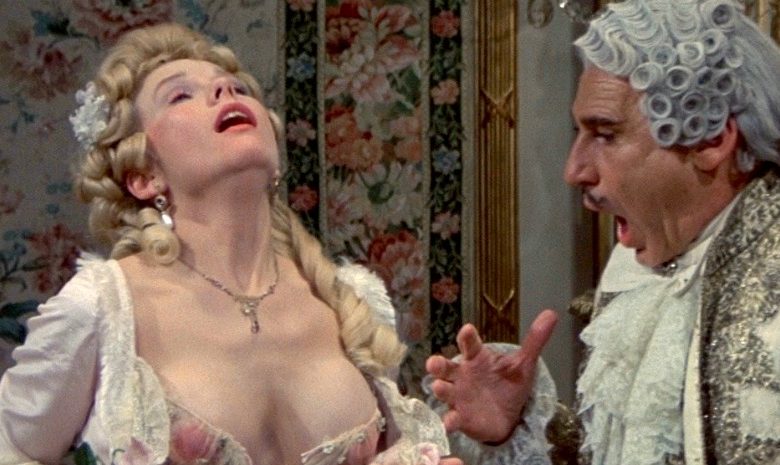
Mel Brooks’ 1981 film “The History of the World Part I” remains a not-so-subtle reminder of the comedy legend’s chops. “History” is Brooks at his bipolar best, delivering classic bits one moment then stumbling over hopelessly stale gags the next. It marks a turning point in his film career after unabashed classics like “Blazing Saddles,” “The Producers” and “Young Frankenstein.”
Suddenly, Brooks’ comic aim wasn’t always true, something we’d learn from “Spaceballs” and future mediocrities.
But if you still can’t get “The Inquisition” number out of your head, then it’s time to revisit this R-rated trek through time.
“History” plays hopscotch over your kid’s social studies textbook, letting Brooks string a series of sketches together under one comic banner.
And as soon as you see Early Man in a pique of self stimulation you know Brooks is working blue for a change.
The film later jumps to the Roman era, with Brooks playing a stand-up comedian (or B.S. spewing philosopher) who runs afoul of Emperor Nero (Dom DeLuise in fine form).
We get a barrage of ancient puns – ba-dum-dum – and endless sight gags featuring the letter “V” replacing “U” in Roman signs. It’s uneven, to be gentle, but with Brooks’ regulars like Madeline Kahn and Ron Carey at full bluster it’s impossible to gripe over the crusty jabs.
The film strikes comic paydirt during The Spanish Inquisition, which Brooks turns into a zany song and dance spectacle. It’s the best scene in the movie and a showcase for Brooks’ genius at fusing music and humor.
The French Revolution segment which ends the film is anything but inspired. It feels more like a Monkees’ episode spiked with scatalogical gags to burnish the R-rating. When our heroes reach The End, you’ll be more than happy to see this journey wrap.
The Zucker comedies – “Airplane!” and “The Naked Gun” – took Brooks’ kitchen sink approach to comedy and ramped up the gags, which makes watching “History” anew a bit of an antiquated experience even when the jokes hit the mark.
DID YOU KNOW?: Mel Brooks says the studio powers that be wanted to remove Hitler from his 1968 comedy classic “The Producers.” “Hitler is the driving force that makes that movie work,” he said later.

It’s good to be the king!